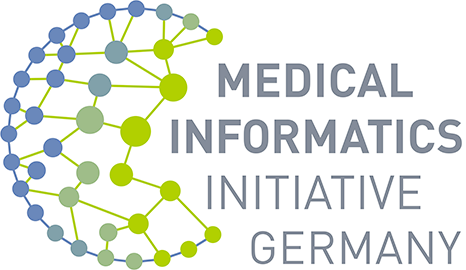To make healthcare data available for research, the SMITH Consortium has established seven Data Integration Centers. Three additional university medical partners are currently establishing one, including the University Medical Center Rostock (UMR). There, Petra Gröber is responsible for the development of the Data Integration Center. After studying communications and computer science at the TU Berlin, she worked at the University of Rostock and then as a research assistant in the IT department of the University Medical Center Rostock. Since 2018, she has been accompanying the development of the Medical Informatics Initiative (MII) as a coordinator for SMITH at the UMR. During the development and networking phase of the MII, the UMR participated in the intensive care Use Case ASIC and was able to learn about the functionality and working methods of the Data Integration Centers at the SMITH partner sites. In the current funding phase from 2023 to 2026, a Data Integration Center will be established at the UMR. In the current issue of "5 Questions for...", Petra Gröber talks about the challenges, opportunities and future plans of the Rostock Data Integration Center.
The Rostock Data Integration Center was a network partner in the development and networking phase of the MII from 2018 to 2022, which means that the Data Integration Center is currently still under construction. How far along are you in establishing the Data Integration Center?
There are many facets: If we look at the technical side, we are in a good position. For example, we are currently testing our ETL (Extract, Transform and Load) routes for production. This is where routine healthcare data is extracted, standardized, and stored in a harmonized way in the Data Integration Center. We also plan to go live with most of the basic core data set modules in the fall. The core data set defines what routine healthcare data is stored and how it is stored so that it can be shared and analyzed across sites. The core data set is divided into basic and extension modules. The basic modules contain interdisciplinary data on cases, persons, diagnoses, procedures, laboratory data and medications. We are currently working on providing these basic modules, with the exception of medication. Organizationally, the establishment of the Data Integration Center is associated with a number of site-specific challenges, which we are successfully overcoming step by step. With the signing of the participation framework agreement, we have just taken a major step forward and can now connect to the German Portal for Medical Research Data (FDPG).
How does the Data Integration Center fit into the existing infrastructure of the University of Rostock?
During its development, the Data Integration Center was organizationally assigned to the Dean's Office and technically assigned to the IT Department. Through close cooperation with both the IT department and the researchers at the UMR, we have become an important interface that drives the development of missing structures and services for clinical researchers here at the University of Rostock. We see the Data Integration Center as part of an urgently needed research IT of the future.
What services does the Rostock Data Integration Center currently offer to local researchers?
We are still in the process of building and this is our first priority. However, we are trying to process data delivery requests as much as possible and are advising researchers on how to apply via the FDPG. We are also working closely with the Research Data Team at Rostock University Library, a facility for researchers that provides advice on all aspects of research data management, research data handling and related services.
What plans do you have for the further development of the Rostock Data Integration Center?
In general, we would like to cover three areas as Data Integration Center in the future: Data provision, services and teaching. In addition to the implementation of the basic modules of the MII core dataset, there are currently signs of a subsequent implementation of the extension modules oncology and intensive care medicine. We have just talked briefly about possible services. We want to be a central point of contact for researchers, providing them with advice, services and tools (e.g. eCRF or electronic lab notebooks) that simplify their work with research data. In teaching, we want to promote the expansion of the topics of medical informatics and research data management in the Faculty of Medicine's degree programs by offering or participating in courses. We also plan to build case collections that can be used in medical training. We will offer workshops and training courses on the Data Integration Center and the use of the tools for UMR employees.
Please complete the following sentence: Data Integration Centers are a valuable infrastructure for clinical research and care because...
... they promote the interoperability of research data and make it easier to work together on collaborative projects across multiple sites.


